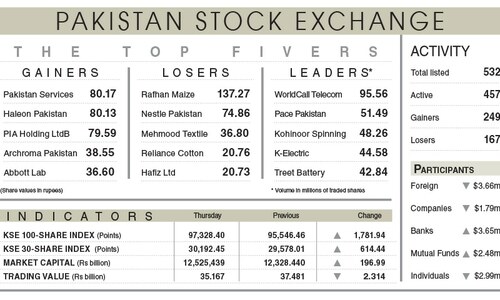
Every year, October is marked by walks, pink sports jerseys, ribbons and what-not as the world observes the Breast Cancer Awareness Month. But beyond the heart-wrenching stats and a bare minimum of organisational initiatives, little changes. There’s hardly anything on how the disease is being fought against, not just by the survivors and victims, but the medical community at large. Our startup this week comes under exactly that.
Meet Xylexa, an Islamabad-based startup that’s developing an artificial intelligence-powered, cloud-based tool to help in early cancer detection of cancer from mammograms. Instead of a radiologist studying the X-ray with the naked eye and then giving his/her diagnostics, their algorithm claims to identify malignancy more accurately.
“There is already a dearth of radiologists around the world, not just in Pakistan, and they spend over 20 minutes on average to read a single mammogram which limits the number of patients they can see. Even then, the accuracy of the first opinion is generally below 70 per cent. With our solution, it increases by more than 20pc while reducing the time needed to read an image, thus enhancing the capacity significantly,” says Xylexa CEO Shahrukh Babar.
The startup was founded by Shahrukh Babar, who studied bioinformatics at university before starting an IoT company for a while, which he later made an exit on. “I always had an interest in the use of artificial intelligence in medicine and after exiting my previous venture, I decided to work on a solution that could aid detection of breast cancer, which has a very high incidence in Pakistan,” the founder recalls.
He is joined by Shahid Abbasi, a US-based Pakistani with experience in the telecom industry, as a co-founder. Xylexa was also part of the accelerator programmes at the National Incubation Centre, Islamabad and Epiphany Labs.
While computer-aided diagnostics (CAD) startups — at a commercial level —are hard to find in Pakistan, there are a number of international players in the market. Starting from Screenpoint with Siemens’ backing to the likes of Curemetrix and Densitas, who have also bagged a few million dollars each. But Babar feels his comparative cost advantage gives Xylexa an edge, which is in addition to better product features that aren’t offered by others, such as cloud-based infrastructure and multi-omics.
More importantly, where does the solution stand in terms of its market reach? Has it been deployed anywhere already? “The cycle for products in medicine is much longer: first, you need centralised, well-labeled data for CAD, then there are approvals and testings involved before getting to the commercialisation bit. Our beta version is ready and now we are partnering up organisations such as the Pakistan Institute of Medical Sciences and Islamabad Diagnostic Centre in different capacities to train our model better,” explains the CEO. He is aiming at rolling out the solution by end of this year and claims to be in talks with the regulator.
Unlike the usual subscription licensing model in the industry, Xylexa intends to put in place a pay-per-study pricing plan so the solution isn’t limited by the size of the institute using it. The startup scored an undisclosed pre-seed round led by Epiphany’s angel network and according to Babar, they are very close to inking a seed deal.
Globally, the number of mammograms done run into hundreds of millions while in Pakistan, the figure only hovers around between 100,000 and 125,000, according to the founder. “There are two types of mammography: diagnostic and screening. The former is performed only in case of symptoms while the latter is part of the mandatory annual medical test after a certain age and is mostly limited to the developed world,” Babar says.
Given the much smaller mammography market in Pakistan — both in terms of total numbers and the institutes doing them — Babar naturally is looking at the international market. But how does he plan to reach there? Apparently, conferences and pitches are the answer. Thanks to those, Xylexa is now part of yet another acceleration programme — that of World Startup Factory in the Netherlands — which the founder hopes would serve as the entry point to the rest of Europe.
Obviously a lot of these are just plans at the moment considering they are yet to roll out commercially and still require regulatory approvals — which is no less than a nightmare in Pakistan, but if their success gives us a chance at beating breast cancer, I hope it works out.
The writer is member of staff:
Twitter: @MutaherKhan
Published in Dawn, August 9th, 2020















































Dear visitor, the comments section is undergoing an overhaul and will return soon.